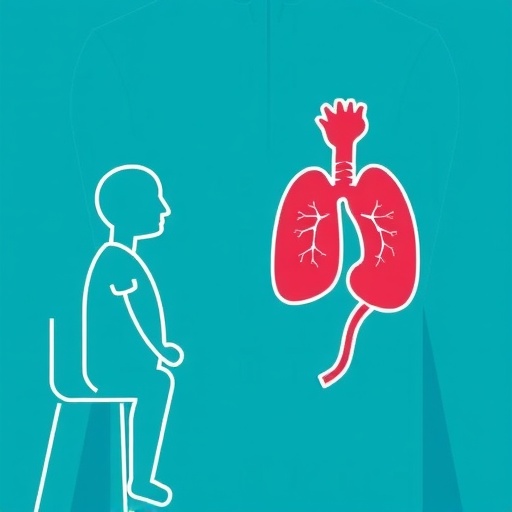New research spearheaded by the University of Nottingham has delivered surprising insights into the effectiveness of opt-out organ donation policies. These policies, widely adopted across numerous nations aiming to augment the pool of lifesaving organs, automatically enroll individuals into post-mortem organ donation programs unless they explicitly refuse to participate. While intuitively expected to boost organ donation rates, the comprehensive study spanning 24 countries over 23 years reveals a more complex and counterintuitive outcome: although deceased donor numbers experienced a slight uplift, the rate of living donations fell sharply, neutralizing any net gain in overall organ availability.
Organ transplantation remains a critical healthcare challenge globally, with demand far outstripping supply. Opt-out policies have garnered attention as a behavioral nudge intended to increase deceased donor rates by leveraging default consent frameworks. Under these systems, individuals must take active steps to opt out, thereby presumed to consent unless stated otherwise. However, the Nottingham-led study highlights that this policy shift may inadvertently suppress living donations — an essential and hugely beneficial source of transplant organs, especially kidneys.
The analysis conducted by an international research team meticulously compared national data on organ donation trends between 2000 and 2023. Their findings indicate that deceased donor rates only increased modestly by 7%, a boost not statistically significant enough to impact the broader system meaningfully. More strikingly, living donor rates plunged by nearly 29%. This decline presents a profound setback because living donations contribute substantially to successful transplantation outcomes, particularly for kidney recipients.
From a psychological perspective, the researchers explored how opt-out systems alter public perception of organ availability. It appears that the introduction of presumed consent fosters a widespread belief that organ shortages have been resolved through policy intervention, leading individuals to underestimate the urgency or necessity of living donation. The study’s behavioral experiments, involving over 5,000 participants across Germany and Austria—countries representing opt-in and opt-out regimes respectively—demonstrated a notable crowding-out effect. This effect primarily diminished the rate of altruistic living donations to strangers or acquaintances, while donations to family members remained relatively unaffected.
The clinical significance of this shift cannot be overstated. In the UK, for instance, kidneys are the most transplanted organ, with living donors providing more than 40% of all organ donations. Living kidney donations are renowned for superior clinical outcomes, with a 90% average ten-year survival rate post-transplant compared to just 75% for organs obtained from deceased donors. Therefore, the substantial downturn in living donor numbers could exacerbate waiting lists and worsen patient prognoses.
Professor Eamonn Ferguson, a leading donor behavior expert at the University of Nottingham, emphasized the unintended consequences of presumed consent policies. He stated, “We discovered a hidden adverse effect where the opt-out default creates the illusion that organ supply shortages are solved, which unintentionally discourages potential living donors. This phenomenon especially threatens the supply of kidneys, an organ where living donations are critical for success.”
The findings have broader implications for health policy design beyond organ donation. As opt-out or default consent structures increasingly feature in areas like vaccination programs, policymakers must carefully evaluate potential crowding-out effects that may undermine intended outcomes. Reliance on such nudges without complementary strategies could inadvertently hinder public health goals.
In England, the opt-out system was introduced under the Organ Donation (Deemed Consent) Act 2019 and formally enacted in May 2020. While intended to revolutionize organ donation metrics, the Nottingham study calls into question the effectiveness of this legislative change in achieving dramatic increases in donor numbers. Instead, it highlights the nuanced behavioral responses to procedural defaults and the complex interaction between public perceptions and donation willingness.
Professor Ferguson advocates for a renewed focus on education and awareness as the cornerstone of future organ donation initiatives. “Changing the default alone is insufficient,” he explained. “Sustained investment in public education, beginning in schools, is essential to foster informed personal decisions and normalize donation discourse throughout society.” He further suggested innovative approaches—such as public art installations to visualize organ donation themes—could stimulate conversations and deepen understanding.
This remarkable study underscores how shifting the contextual framing of a health policy can unintentionally produce counterproductive results. Opt-out organ donation policies, while well-meaning, may inadvertently cause a decline in altruistic living donations, leaving healthcare systems no better equipped to meet the urgent demand for transplantable organs. These insights compel a re-evaluation of the balance between policy defaults and active public engagement strategies to ensure that lifesaving donations continue to increase sustainably.
Ultimately, the research calls attention to the critical importance of addressing human psychology in the design and implementation of public health initiatives. By acknowledging and mitigating the crowding-out effect revealed through robust data and behavioral experiments, governments and health organizations can craft better solutions that genuinely augment organ donation rates without unintended negative consequences. The challenge remains to integrate policy tools with education and social dialogue that inspire proactive donor commitments on multiple fronts.
Subject of Research: People
Article Title: Crowding-out effects of opt-out defaults: Evidence from organ donation policies
News Publication Date: 28-Oct-2025
Web References: https://dx.doi.org/10.1093/pnasnexus/pgaf311
Keywords: Organ donation, Public health




